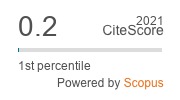Trends of Consumer Behavior Analysis in E-Commerce for Fake/Spam Opinion Detection
Keywords:
Fake opinion, Spam Review Detection, E-commerce, Deep learning, Machine learning, Fraudsters.Abstract
User-generated reviews can have a substantial impact on an organization's income in e-commerce. When making a purchase or deciding on a service or product, online customers depend on the opinions of others. Thus, e-commerce product reviews' trustworthiness is critical for organizations, and it can have a direct impact on their reputation and revenue. As a result, some online purchasing and selling companies employ fraudsters to create bogus or fake opinions or reviews on their websites. The objective of fake reviews is to mislead customers into making the wrong purchasing decision. In the last two decades, different methods of detecting fraudulent reviews have been intensively investigated. However, there is still a lack of the literature surveys that can really investigate and summaries the current methods and challenges facing fake opinions detection. In order to tackle this problem, this survey sums up the publicly available datasets and their gathering methods for the detection of fraudulent reviews. It examines the methods that are currently in use for feature engineering for fake review analysis, as well as deep learning and classical machine learning that have been implemented for fake review classification and finds any inconsistencies and limitations



